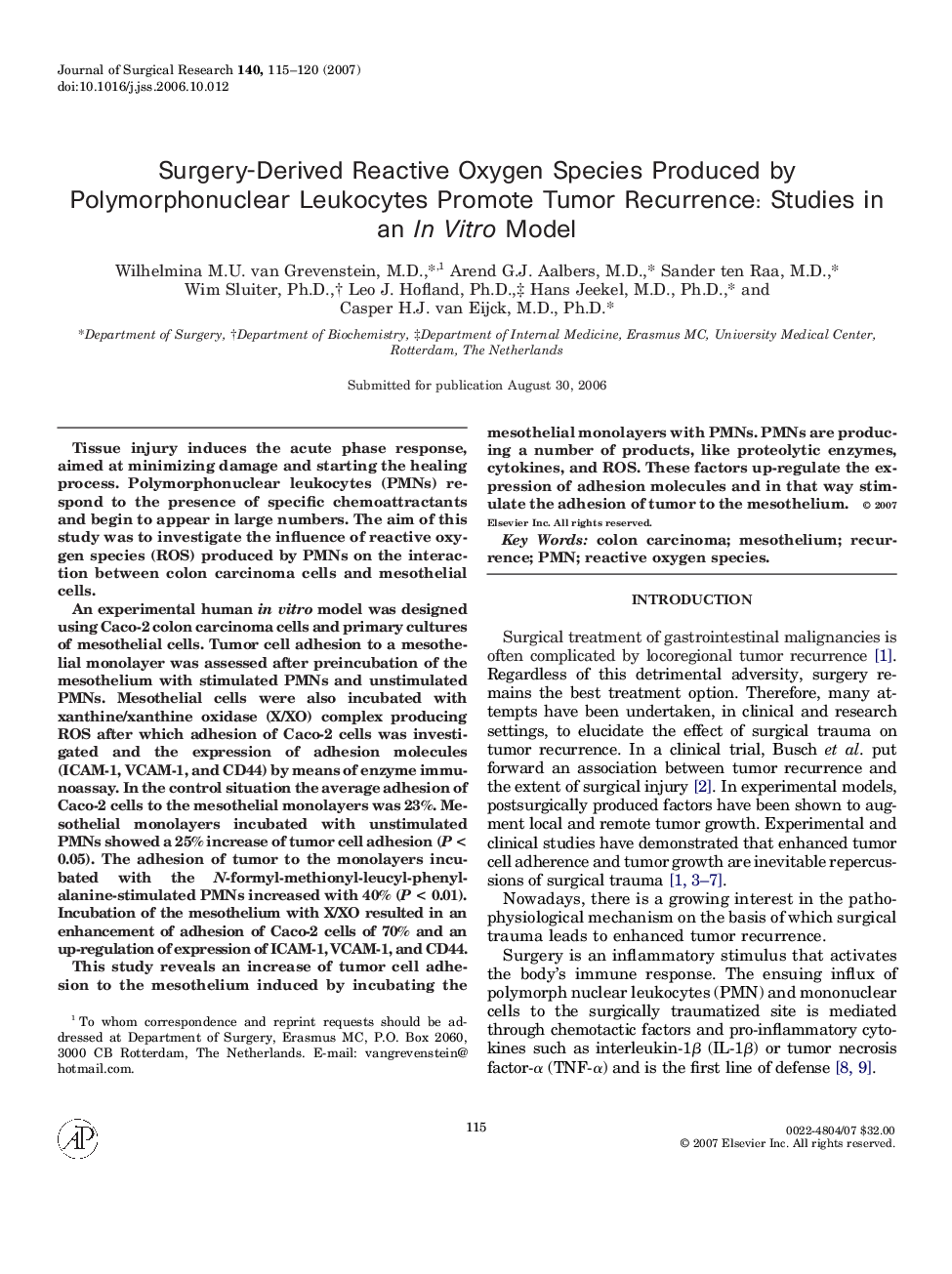| Article ID | Journal | Published Year | Pages | File Type |
|---|---|---|---|---|
| 4304592 | Journal of Surgical Research | 2007 | 6 Pages |
Tissue injury induces the acute phase response, aimed at minimizing damage and starting the healing process. Polymorphonuclear leukocytes (PMNs) respond to the presence of specific chemoattractants and begin to appear in large numbers. The aim of this study was to investigate the influence of reactive oxygen species (ROS) produced by PMNs on the interaction between colon carcinoma cells and mesothelial cells.An experimental human in vitro model was designed using Caco-2 colon carcinoma cells and primary cultures of mesothelial cells. Tumor cell adhesion to a mesothelial monolayer was assessed after preincubation of the mesothelium with stimulated PMNs and unstimulated PMNs. Mesothelial cells were also incubated with xanthine/xanthine oxidase (X/XO) complex producing ROS after which adhesion of Caco-2 cells was investigated and the expression of adhesion molecules (ICAM-1, VCAM-1, and CD44) by means of enzyme immunoassay. In the control situation the average adhesion of Caco-2 cells to the mesothelial monolayers was 23%. Mesothelial monolayers incubated with unstimulated PMNs showed a 25% increase of tumor cell adhesion (P < 0.05). The adhesion of tumor to the monolayers incubated with the N-formyl-methionyl-leucyl-phenylalanine-stimulated PMNs increased with 40% (P < 0.01). Incubation of the mesothelium with X/XO resulted in an enhancement of adhesion of Caco-2 cells of 70% and an up-regulation of expression of ICAM-1, VCAM-1, and CD44.This study reveals an increase of tumor cell adhesion to the mesothelium induced by incubating the mesothelial monolayers with PMNs. PMNs are producing a number of products, like proteolytic enzymes, cytokines, and ROS. These factors up-regulate the expression of adhesion molecules and in that way stimulate the adhesion of tumor to the mesothelium.
